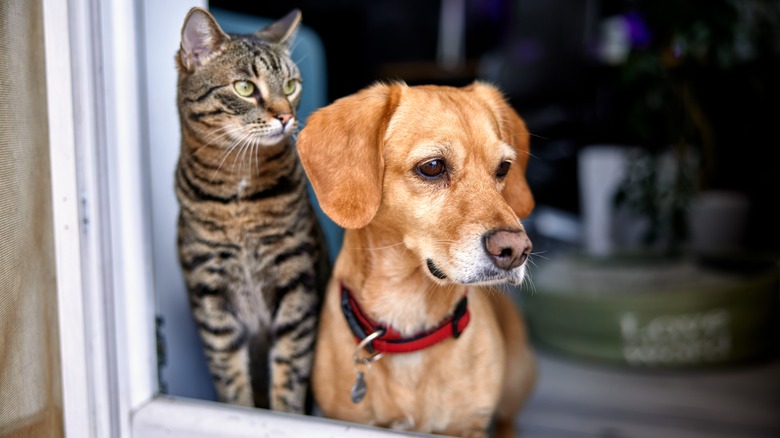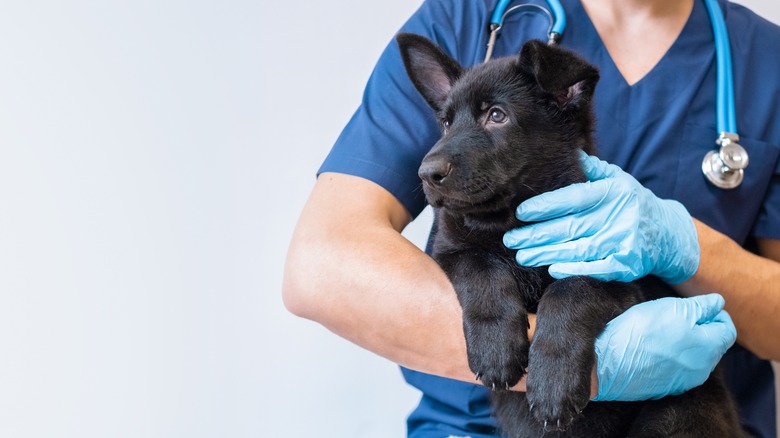Can Your Pets Get Monkeypox?
There's already enough to worry about with monkeypox, between worrisome symptoms and fears of it spreading. But do we also need to be worried about spreading it to our pets?
Monkeypox is transmitted through close personal contact, usually skin-to-skin, according to the Centers for Disease Control and Prevention (CDC). You have to directly touch the lesions of a person who has monkeypox or come into contact with their bodily fluids. You can also get it from breathing in respiratory particles, like when a person near you coughs or sneezes or using an object that someone with monkeypox has used, like a towel, bedding, or clothing.
In the U.S. monkeypox is considered an outbreak, not a pandemic or epidemic, according to the Boston University School of Public Health. But if it begins to spread within wild or domestic animal populations, it becomes endemic (via Buzzfeed News). On the continent of Africa, the virus spreads to rodents, so if a human gets scratched or bitten by an animal infected with monkeypox, they'll contract it too.
The case of an infected dog in Paris
Until recently, there hadn't been any cases of dogs or cats being infected with monkeypox, but a recent case report published in The Lancet showed that transmission from humans to pets might be possible. In Paris, a 4-year-old Italian greyhound tested positive for monkeypox after developing lesions on its abdomen and anus. The report stated that the dog had most likely gotten the virus from sleeping in the owners' bed, who had developed symptoms of lesions and rashes 12 days before. Researchers said that more studies are needed to learn how pets might be affected and how isolation protocols might help.
Your pet probably won't get monkeypox from going on a walk in the park, but there are precautions you can take to keep your pets safe if you contract the disease. To keep it from spreading to your beloved dog or cat, make sure you avoid contact with them, especially if you have lesions (via Buzzfeed News). Be careful to keep them away from your bandages or fluids as well. Clean your hands before and after interacting with your pets, and wear a mask to prevent any droplets from spreading to them. After you've recovered, wash and disinfect any bedding, towels, clothing, food bowls, and toys you came into contact with.


